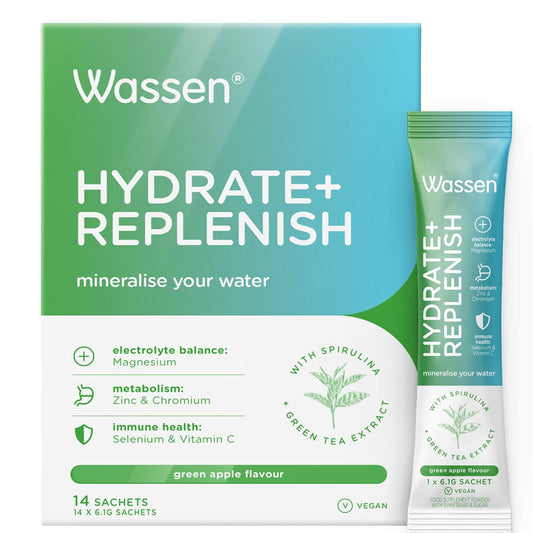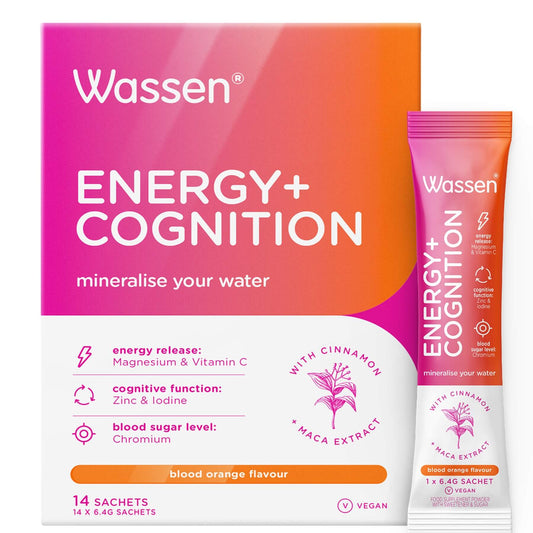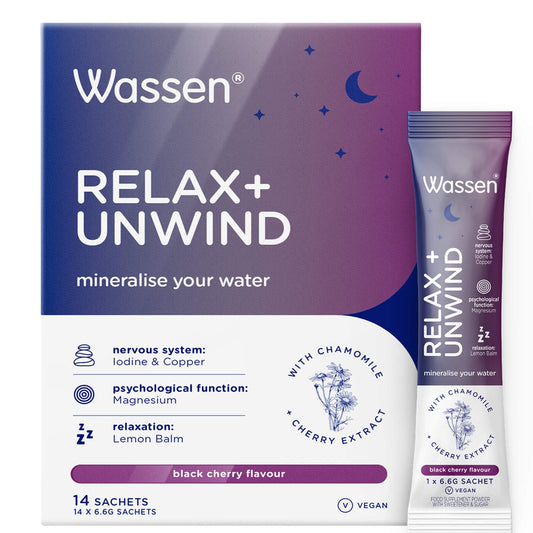Electrolytes are vital for so many functions in the body! But what exactly are they, and why are they so important? Our in-house Nutritionist Emma explains:
What are electrolytes?
Electrolytes are salts and minerals that help to conduct electrical impulses in the body.[1] They have an electric charge when dissolved in fluid, and are found in our blood, urine, tissues and other bodily fluids.
Electrolytes in our body include:
- Sodium
- Potassium
- Calcium
- Bicarbonate
- Magnesium
- Chloride
- Phosphate[2]
You get these from the food that you eat and the fluids that you drink.

Why are electrolytes important?
Our bodies rely on small electrical currents to carry out many bodily functions. Electrolytes act as conductors, carrying these electrical charges. They work in together with cells in your tissues, nerves, and muscles.
Electrolytes play a vital role in:
- Muscle contraction
- Nerve transmission
- Regulating fluid levels
- Blood pressure regulation
- Maintaining pH balance in your blood
- Helping blood to clot
- Helping build new tissue [3]
What is an electrolyte imbalance?
Maintaining the right balance of electrolytes is crucial for your body to function at its best. An imbalance can be caused by the levels of the electrolytes in your blood being either too high or too low.
The concentration of electrolytes in your body is regulated by your kidney and several hormones. The kidneys will remove excess electrolytes if the concentration is too high, whilst hormones work to restore balance.[4]
Electrolyte imbalances can be caused by a range of things, but the most common are sweating (during exercise or heat), or due to illness (fluid loss due to vomiting or diarrhoea). It's especially important to rehydrate and replenish lost electrolytes on these occasions.
Why are electrolytes especially important in the heat / during exercise?
When you exercise, you lose important electrolytes including sodium and potassium in your sweat. This can lead to dehydration and electrolyte imbalance. If you don’t rehydrate properly, this may leave you feeling fatigued and may impact your performance.

How to maintain your electrolyte balance
Hydrate, hydrate, hydrate:
Drink plenty of fluids before, during, and after exercise, especially in hot weather. Water is usually sufficient for moderate exercise, as it contains trace amounts of sodium, potassium, magnesium, and calcium, which are all electrolytes. For prolonged or intense activities, you may wish to consider drinks containing electrolytes such as Wassen Hydrate + Replenish.

Eat a balanced diet:
A healthy balanced diet rich in fruits, vegetables, and whole grains can provide most of the electrolytes you need.
Good sources of electrolytes in food include:
- Bananas
- Avocados
- Leafy greens
- Nuts
- Dairy products

Now you understand what electrolytes are and why they are so important, particularly during hot weather or when exercising! By staying hydrated and eating a balanced diet you can keep your electrolyte balance in check.
If you have any questions, drop us an email at info@wassen.com
[1] https://www.nhs.uk/conditions/electrolyte-test/
[2] https://medlineplus.gov/fluidandelectrolytebalance.html
[4] https://www.medicalnewstoday.com/articles/153188#sources





